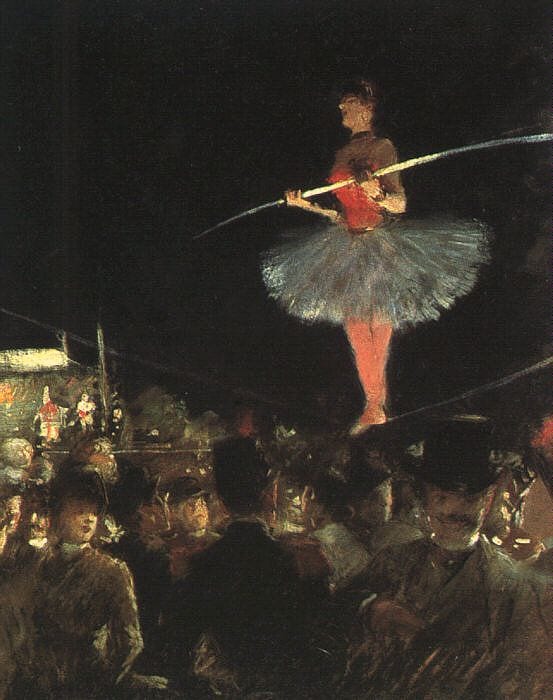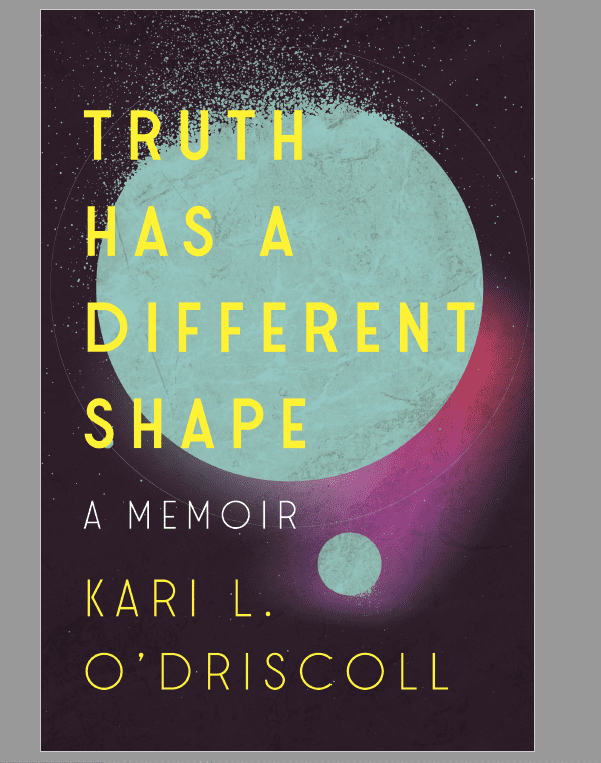As I listened to the girls snipe at each other on the way home from school the other day, instead of allowing my blood pressure to rise, resisting the urge to insert my words into the cacophony of chaos and swirling anger, I detached. I listened. I traced the progression of hurt, fear, anger, misunderstanding. Later, as Lola set the table for dinner, a new argument erupted and I again noted the path from misinterpretation to rage and a thought began to crystallize. A question:
What if, at any point during the escalating war of words, one of my girls stopped to ask ‘why?’
- Why would she say/do something like that to me?
- Why does it bother me so much?
As an observer who knows both of my girls and their developmental stages intimately (Lola – fearful of transitions and just starting a new school, living in a new house and neighborhood and meeting all new friends. Eve – nearly thirteen and experiencing everything as if it were personally aimed at her and her burgeoning identity and having her younger sister encroaching on her school territory for the first time in years), I can instantly spot the moments where perception and interpretation is everything. I can see where a word was misheard or an intention assumed that wasn’t there. But by the time I wedge my perspective into the middle, the harsh words have already inflicted pain and harm and the fight is no longer able to be stopped.
A few months ago I heard someone say, “Most people listen with the intent to respond rather than the intent to understand.” I felt myself in that realization. I cringed as I looked back to the numerous times I had barely been able to hold my tongue until the other person took a breath before I inserted my story/wisdom/advice/perspective. I was embarrassed. Fortunately, that uncomfortable feeling soon gave way to curiosity. How much information and clarity am I missing by not seeking to understand what someone is telling me? How often am I arresting their narrative by shifting the focus of the conversation to what I have to say?
All it takes is ‘why.’
For those of us who have been around young children and toddlers, whether as aunts and uncles or parents or teachers or grandparents, we recall with enormous sighs the days of “Why.” The days where every answer or statement is met with the question, “Why?” Where no amount of information is ever enough. We have all been pushed to our limits of patience and, often, knowledge, by the rapid-fire inquisition of a curious child. And while that is exhausting and often annoying, I wondered the other day if it isn’t something we all ought to be doing more of as adults – asking why.
I think that the power of why lies in its ability to stop the ego-centric notion that most of us walk around with all day long, that everything that happens around us or even to us is about us. That the checker at the grocery store who appeared to roll her eyes at me might have entirely different reasons for doing so than I originally think. Why would she do that? Maybe her contact lens slid off to the side of one eye and that’s how she gets it back on track. Perhaps she heard something on the radio in the store that I didn’t key into. Or maybe, yes, maybe she thinks I’m annoying for some reason. Okay. Why does her eye-rolling bother me? Because I feel judged by her? Because I was actually being somewhat annoying by insisting on something extra and I feel a little guilty about it? Because I got in a fight with my teenager this morning and I’m feeling a little emotionally fragile?
I haven’t solved my issue here, but I have given myself a moment to breathe by asking the questions, and I have also considered things that give me more information about the way I am feeling. The important part is that I haven’t assumed anything that might send my mood spiraling out of control or cause me to growl at the checker when she may not deserve it.
I haven’t broached this subject with Eve and Lola yet because I wanted to test it out on myself for a few days first. So far, I have learned a few things:
- Asking, “Why?” gives me the opportunity to step back from a biting remark uttered by one of my children and acknowledge that there might be a reason she is being snarky right now. It doesn’t excuse the behavior, but it does allow me to consider whether or not she has had a bad day and refrain from taking her remark as a personal slight.
- After this momentary breather, I am often able to ask “Why?” out loud which gives the other person a chance to examine their own behavior and either explain to me something I may have misunderstood or realize how it sounded. It also gives them the impression that I am willing to stay engaged in the interaction in a positive way, listening and truly trying to understand, and it often has the effect of turning the conversation around.
As a child I was known as a chatterbox and, feeling impotent to change that or battle the label, I embraced it. At the age of 40, I’m beginning to see just how much I may have missed out on by not staying quiet more often and simply listening.










Such wise words. I will think about this for the rest of the day —
Sounds like you've been doing some soul-untethering!
Shared this with my daughter. Sounds like you might have some ideas for her. She has ten year old triplets and a six year old boy. She needs all the insight and help she can get in knowing how to communicate with them. Whew. Some days are a disaster at her place. Thanks for sharing this.
Blessings, Barb
I can't thank you enough for writing this post! It really made me stop and think – first about my daughters and their relationship with each other (frequently snarky!) and then on a much deeper level. "Why?" is such a simple question, yet it could easily lead to major and minor revelations.
I'll be thinking about your words for while . . . and hoping I remember to ask "Why?" much more often.
Keep up the good and insightful writing.
Dear Kari, this posting seems helpfully perceptive to me. Years ago I read something similar about listening and realized that mostly I was thinking of a response while the speaker was continuing to talk.
Consequently, I changed my listening. No long do I plan responses, and the result has been that one person after another–one friend after another–has commented, "What a good listener you are, Dee." And they seem to feel that their words and feelings are being honored. And I know that I am truly getting the words behind the words they are saying.
Peace.
loving this so much! this sentence was great: "most people listen with the intent to respond rather than the intent to understand." SO TRUE, im embarrassed to say.
oh, and i got the comment that you left for me re. CB's "walk" and your sweet support. I will send you an email from our team site with info, etc. our team on the webpage says we have raised zero dollars but that is NOT TRUE 🙂 we just collected the checks in hand and turned them in on walk day – they haven't updated our webpage yet. anyway, they collect up until december 🙂 thanks for thinking of us!